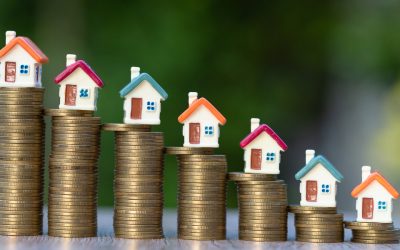Imagine a rental property bathed in the warm glow of the sun, not just providing shelter, but also generating clean, renewable energy. The idea of installing solar panels on a rental property may seem like a distant dream, but it’s closer to reality than you might think.
You can put solar panels on a rental property as long as you have permission from the landlord. In some cases, the landlord may be willing to install solar panels themselves or allow you to do so with certain conditions. It is important to have a clear agreement in place before making any changes to the property.
In this discussion, we will explore the factors that determine the feasibility of solar panel installation on rental properties, the benefits and challenges associated with it, and how renters can navigate the financial and practical aspects of embracing solar energy.
So, if you’ve ever wondered whether you can harness the power of the sun while living in a rental, read on to uncover the possibilities and potential of solar panels on your roof.
Key Takeaways
- Factors to consider for solar panel installation on rental properties include roof condition, orientation, shading, tenant cooperation, and local laws and regulations.
- Installing solar panels on a rental property can result in cost savings on electricity bills, increased property value, attracting environmentally-conscious tenants, competitive advantage in the rental market, and positive environmental impact.
- Challenges of installing solar panels on a rental property include assessing roof feasibility, understanding government incentives and financing options, potential impact on the rental property market, consultation with solar experts, and consideration of roof shading.
- Assessing the feasibility of solar panel installation for renters involves assessing roof condition, orientation, and shading, consulting with solar experts, evaluating weight-bearing capacity of the roof, evaluating amount of sunlight received, and identifying obstructions causing shading.
- Understanding the financial aspects of solar panel installation for renters includes researching government incentives and grants, understanding eligibility criteria and application process, exploring financing options such as solar loans and leasing agreements, comparing interest rates, repayment terms, and fees, and aligning financing option with budget and long-term goals.
Factors Determining Solar Panel Installation on Rental Properties
To determine if solar panel installation is practical and efficient for your rental property, assess the roof condition, orientation, and shading.
These factors play a crucial role in determining the viability of solar panels on your property. Start by examining the roof condition.
Is it structurally sound and capable of supporting the weight of solar panels? If there are any issues, such as leaks or damage, it’s important to address them before proceeding with installation.
Next, consider the roof’s orientation. South-facing roofs typically receive the most sunlight throughout the day, making them ideal for solar panel installation.
However, east and west-facing roofs can still be viable options depending on the amount of sunlight they receive. Take note of any obstructions, such as trees or nearby buildings, that may cause shading and reduce the efficiency of the solar panels.
Assessing tenant cooperation is another important aspect to consider. While you may be convinced of the benefits of solar panels, it’s crucial to communicate effectively with your tenants and educate them about the advantages. Discuss the potential savings on electricity bills and the positive environmental impact. By involving your tenants in the decision-making process and addressing their concerns, you can increase the likelihood of their cooperation.
Lastly, be aware of the legal implications of installing solar panels on your rental property. Research and understand local laws and regulations regarding solar panel installation, permissions, and any potential impact on property value and demand. Compliance is essential to avoid any legal issues and to ensure a smooth installation process.
Benefits and Challenges of Installing Solar Panels on a Rental Property
Assessing the factors determining the viability of solar panels on your rental property, it’s now important to explore the benefits and challenges of installing solar panels. From a renter’s perspective, there are several advantages to having solar panels on a rental property. Here are the benefits:
- Cost savings on electricity bills: Solar panels generate clean and renewable energy, resulting in significant savings on utility bills. This can make your rental property more affordable and attractive to potential tenants.
- Increased property value: Installing solar panels can increase the value of your rental property. Many renters are willing to pay more for a property with sustainable features like solar panels.
However, there are also challenges to consider when installing solar panels on a rental property. Here are a few:
- Feasibility assessment: You need to assess the roof condition and orientation of the property to determine if it’s suitable for solar panel installation.
- Financial aspects: Understanding government incentives and financing options is crucial. It’s important to explore available grants, tax credits, and financing options to make the installation financially viable.
Installing solar panels on a rental property can have a potential impact on the rental property market. It can attract environmentally-conscious tenants who prioritize sustainability. Additionally, it can contribute to the overall property value and make your rental property stand out in a competitive market.
Assessing the Feasibility of Solar Panel Installation for Renters
Before determining if solar panel installation is feasible for your rental property, it is important to assess the condition, orientation, and shading of the roof. Consulting with solar experts can also provide valuable insights regarding the suitability of your rental property for solar panel installation.
Assessing rental property suitability involves evaluating several factors. First, consider the condition of the roof. Is it structurally sound and able to support the weight of solar panels? Next, examine the roof’s orientation. Ideally, a south-facing roof receives the most sunlight throughout the day, making it more suitable for solar panel installation. Additionally, assess the shading on the roof. Trees, neighboring buildings, or other obstructions can significantly reduce the efficiency of solar panels.
To make the assessment process easier, consider using the following table:
| Factors to Assess for Solar Panel Installation | Yes | No |
|---|---|---|
| Is the roof in good condition? | ||
| Does the roof have a favorable orientation? | ||
| Is the roof free from shading? | ||
| Is the roof strong enough for solar panels? |
Understanding the Financial Aspects of Solar Panel Installation for Renters
Understanding the financial aspects of solar panel installation for renters is crucial for making an informed decision about investing in renewable energy. By considering the following points, you can gain a deeper understanding of the financial implications of installing solar panels on your rental property:
Government Incentives:
- Research available government incentives, such as tax credits or grants, that can significantly reduce the upfront cost of solar panel installation.
- Understand the eligibility criteria and application process for these incentives to ensure you can take full advantage of the financial benefits.
Financing Options:
- Explore different financing options, such as solar loans or leasing agreements, to determine the most suitable choice for your financial situation.
- Compare interest rates, repayment terms, and any associated fees to select a financing option that aligns with your budget and long-term financial goals.
Choosing the Right Solar Panel System for a Rental Property
To ensure maximum return on investment, it’s crucial to carefully select the right solar panel system for your rental property, taking into account factors such as energy production, warranty, and long-term reliability.
When considering solar panel selection for a rental property, there are a few key considerations to keep in mind.
Firstly, evaluate the property’s roof condition, orientation, and shading to assess the feasibility of solar panel installation. A well-maintained roof with proper orientation and minimal shading will optimize the energy production of the solar panels.
Next, consider the financial aspects of the solar panel system. Look into government incentives and financing options that can help offset the cost of installation and increase the return on investment. It’s important to weigh the upfront costs against the potential long-term savings to make an informed decision.
Moreover, it’s essential to choose a solar panel system with a reliable warranty and long-term reliability. Look for panels from reputable manufacturers that offer comprehensive warranties, ensuring that any maintenance or repair needs are covered.
Consulting with solar panel experts or contractors can provide valuable insights and guidance in selecting the appropriate system for your rental property. They can assess the property’s specific requirements and potential, helping you make an informed decision.
Frequently Asked Questions
Can You Get Solar Panels on a Rented House?
You can definitely install solar panels on a rented house, as long as there are no rental property restrictions. It’s a smart move that can provide you with several benefits, such as lower energy bills and a reduced carbon footprint.
Do I Need to Tell My Electricity Supplier I Have Solar Panels?
Yes, you should inform your electricity supplier about your solar panels. This allows for accurate billing and registration for incentives. It also ensures coordination for maintenance and grid connection. Failure to inform may result in billing issues and affect your eligibility for solar incentives.
Can I Install Solar Panels on a Commercial Property?
Yes, you can install solar panels on a commercial property. It offers benefits like cost savings, increased property value, and potential income from excess electricity. Assess roof condition, orientation, shading, and consult experts for guidance.
How Many Solar Panels Does It Take to Power a House?
To power a house, you’ll need around 20 to 30 solar panels on average. Factors like energy consumption, location, and panel efficiency affect the number. Consulting a solar panel expert can help determine the precise amount.
Final Thoughts
Installing solar panels on a rental property can be a wise decision, offering numerous benefits such as cost savings, increased property value, and potential extra income.
However, it’s essential to assess the feasibility of installation based on roof condition and orientation, understand the financial aspects involved, and choose the right solar panel system.
Consulting with solar panel experts or contractors can provide valuable guidance throughout the process.
Make an informed decision and reap the rewards of solar energy.
- Rent-to-Rent Schemes: Hidden Dangers Lurk - July 6, 2024
- How to Sell Your House Fast in Kent - July 5, 2024
- 7 Tips to Sell Your House Fast - July 4, 2024


